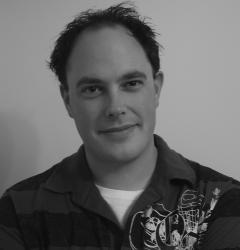Words of Wisdom (from Jason Robert Brown)
Hey everyone. Over the next couple of weeks, I want to post some words of wisdom that I’ve gained from people who are “in the business”; both composer and performers.
I’ve had the opportunity to sit in on workshops with these people, and from these I’ve taken a lot of notes. So, what I’m going to do is break it all down into simple points, and hopefully some of you out there will get something out of it, like I did! I have posted some of these before on my other daily blog (www.drewlanecomposer.wordpress.com), but I felt that such wisdom and “insider information” might be able to reach a wider audience here at Aussie Theatre.
In March of this year (2011), Jason Robert Brown came to Australia to do a series of intimate concerts and workshops. I attended both of them, but it was the singer’s workshop that I took a ton of notes. They’re all a little random: some are to do with the art of writing musicals, some are about how to audition, some are about the history of musical theatre, and some are just … well … random!
Of course, with any advice, you have to pick and choose what you use. Not everything written here are you going to agree with (nor do I), but there is a lot of good stuff. So cast your eyes over what below, and if something resonates with you, then it’s probably something to pay attention to!
1. The 1940’s – 1960’s are the Golden Age of musical theatre. If you want to learn something, start here.
2. Create a dramatic thrust in your songs.
3. AABA structure of songs (this is probably one the most important things I learned). An AABA structured song has the answer “NO” all the time. I.E.
A – Give me the thing – “NO” – That doesn’t work, so …
A – Give me the thing – “NO” – That doesn’t work either, so …
B – Here’s my reason for wanting the thing, so now…
A – Give me the thing
4. The most important stuff is in the B section of the song – that’s the moment of transition.
5. Something is happening when you musically modify the second A. (See also #16)
6. The character needs to earn the big note (See also #18).
7. Try speaking the lyric to help direct where the music should go. (See also #19)
8. The lyric needs to “win” over the music.
9. The more specific you are in your ability/talent, the more jobs you’ll get – it’s specialising.
10. What is the goal in having the song? What is my goal for the song?
11. When auditioning, have songs that are for roles that you could potentially play. E.g. Don’t sing ‘Can’t Help Lovin’ Dat Man’ if you’re not black!
12. Be mean to yourself as a writer. How does what you’ve written feel in your heart? Be ruthless.
13. Getting your works produced – at whatever level – is half the battle. If you can do that, you can workshop it via that process and you’re already much further ahead than many writers.
14. Don’t choose a song for an audition that doesn’t have a pedigree. Your song needs to have stage history, and preferably pieces that have been done professionally. If you choose an audition piece that was written by a composer friend of yours, you’re really advertising their work, and not your ability.
15. Don’t set up a comparison you can’t live up to. This ties in with yesterday’s point about choosing songs that are for roles you conceivably could get and perform.
16. In the structure of a song, the composer tells you what you need to achieve in the song. Make sure you know the purpose of the song.
17. When you’re performing the song, make sure you know who the song is directed at.
18. You, as the performer, need to earn the big note.
19. Try speaking the lyric of the song to help discover why the music goes where it does.
20. What’s the most important word in each sentence/phrase of the lyric?
21. Know the musical theatre repertoire from all ages, not just from the last 5 or so years.
22. The singer has got to tell the story!
23. Find out what the driving questions of the song are.
24. Your audition starts the moment you step into the room: before you’ve opened your mouth or even spoken to the audition pianist. When you get to the singing, most people know within the first 2 notes if you’re right for the part or not.
25. Avoid using material from juke-box musicals (We Will Rock You, Mamma Mia, et al) in your audition, unless it is for a jukebox musical!
26. Don’t over-hold your musical notes to hide a lack of understanding of the song.
Well, I hope this helps some of out there! As always, please feel free to leave comment/thoughts/suggestions/rants! I’d love to hear from all who are reading this blog!
Until next week,
Blog ya later!
Drew
Photo by: Awezmaz


